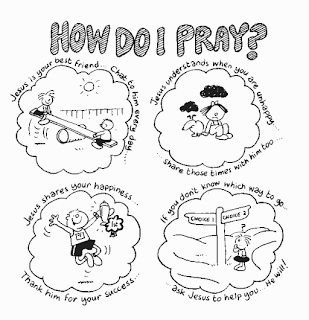With the stage set by the introduction of ‘Education in the Christian Community’ (ECC), the lessons following focused on detail the six influencing factors of ECC; purpose, context/environment, curriculum, participants, process/methods, and management. I can say that it has so far been an interesting learning adventure with mind provoking thoughts.

A strong belief I have concerning education is that we need to redefine curriculum. It has to be contextually relevant and applicable where the necessary information will provide a library of timeless principles which can beneficial to the lives of the community. Christian Education needs to have vision beyond the explicit curriculum of what it is precisely that we teach. This expansion needs to take place from intellectual skills to practical skills and from planned activities to unplanned experience. Karen Tye acknowledges such a challenge from Maria Harris, “I think she also challenges us to broaden our understandings of what content is and to see beyond the limits of printed resources” (50, Basics of Christian Education). This point was an awakening call to me in that whenever I am tasked with producing a curriculum, emphasis must be given the consideration the audience, their cultural context, their situations and their needs. I must remember that it is a dynamic relationship of the bible and life. It not just a bible study, it must be a life transforming program.
Another interesting concept that tickled my mind was the fact that human development is modifiable. This point completely blows away the saying, ‘a leopard can't change its spots.' As individuals, there are more occasions than not that we must willingly learn to give up our hard-won independence and become interdependent. This does not mean becoming weak or less capable of doing things. We become interdependent in order to become stronger as a body of Christ. God's plan for our maturity is not individualistic. Anyone who wants to be a complete Christian must realize that he is part of a body of believers, dependent on others, and must begin to act accordingly. It warns me against falling prey to being judgmental of others. It reminds me of the humility of Jesus; the emulation of His character and servanthood to others even in the face of adversities. As a student in Bible College, I believe such interdependency is crucial in our individual and corporate developmental growth. It helped me adjust better and gain better insights to the teaching of God’s word. Independence may sound cool but interdependence is solidarity as a community of faith.
The last lesson for the week ending 2 July on process and method was a timely reminder to its importance in education. Process requires an integration of experiential, relational, and reflective inputs providing a safeguard against planning a hodgepodge of unrelated activities and promotes church-wide conversation and shared language that supports inter-generational dialogue. It is crucial and helps shape the culture of the community making education more effective than a just a ‘schooling’ approach.

What challenges me more is the method of implementation where it can either be learning through life experiences or operating ‘out of the box’ away from the classroom setting. For this I realize the acceptance intricacies of the community. While it’s not rocket science, it is also not necessarily easy either for a change to a lifestyle can be a slow, if not difficult, process to bring about under certain conditions. Planning is not an easy process. It takes time and involves consistent, hard work. But personally I find it worth it! I, like many others, am often tempted to “do something quickly.” It is best, however, to resist this temptation and plan with the culture of the community in mind. A lasting impression for me is the four components to the planning approach in ‘Planning for Christian Education Formation’ by Israel Galindo and Marty C. Canaday. First, congregations are urged to take a community of faith approach to the Christian education formation program in church. Second, the planning flows from an integrated structure through the Christian Education planning committee. Third, the use of the church’s theme as a natural and theologically informed framework for commencement of the education programs. Lastly, the importance of assessing the effectiveness of the implemented program.
Finally the influencing area of management re-enforces my belief of the need for short / long term plans, assessment and evaluation, all of which provides vital checkpoints in our spiritual growth. I am also a firm believer of thinking out solutions for the possible hindrances.





